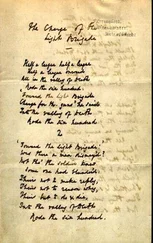Alfred Drayson - The Gentleman Cadet
Здесь есть возможность читать онлайн «Alfred Drayson - The Gentleman Cadet» — ознакомительный отрывок электронной книги совершенно бесплатно, а после прочтения отрывка купить полную версию. В некоторых случаях можно слушать аудио, скачать через торрент в формате fb2 и присутствует краткое содержание. Жанр: foreign_prose, foreign_children, foreign_language, на английском языке. Описание произведения, (предисловие) а так же отзывы посетителей доступны на портале библиотеки ЛибКат.
- Название:The Gentleman Cadet
- Автор:
- Жанр:
- Год:неизвестен
- ISBN:нет данных
- Рейтинг книги:3 / 5. Голосов: 1
-
Избранное:Добавить в избранное
- Отзывы:
-
Ваша оценка:
- 60
- 1
- 2
- 3
- 4
- 5
The Gentleman Cadet: краткое содержание, описание и аннотация
Предлагаем к чтению аннотацию, описание, краткое содержание или предисловие (зависит от того, что написал сам автор книги «The Gentleman Cadet»). Если вы не нашли необходимую информацию о книге — напишите в комментариях, мы постараемся отыскать её.
The Gentleman Cadet — читать онлайн ознакомительный отрывок
Ниже представлен текст книги, разбитый по страницам. Система сохранения места последней прочитанной страницы, позволяет с удобством читать онлайн бесплатно книгу «The Gentleman Cadet», без необходимости каждый раз заново искать на чём Вы остановились. Поставьте закладку, и сможете в любой момент перейти на страницу, на которой закончили чтение.
Интервал:
Закладка:
Drayson Alfred W. Alfred Wilks
The Gentleman Cadet / His Career and Adventures at the Royal Military Academy Woolwich
The following pages contain a history of the life of a Woolwich Cadet as it was about thirty years ago. The hero of the tale is taken through the then usual routine of a cram-school at Woolwich, and from thence passed into the Royal Military Academy. The reformation that has taken place – both in the preparatory schools and also at the Academy – may be judged of by those who read this book and are acquainted with existing conditions. The habits and life of a Cadet of the present day are well known, but the singular laws and regulations – written and unwritten – in former times may not be so generally understood; and, as memory of the past fades away, the following pages have been penned, to give a history of the singular life and manners of the old Cadet. The work has no other pretensions than to give this history, and to afford amusement to the young aspirant for military glory.
Southsea, September , 1874.
Chapter One
My Home Life
On the borders of the New Forest, in Hampshire, stands an old-fashioned thatch-roofed family-house, surrounded by cedars and firs, with a clean-shaved, prim-looking lawn opposite the drawing-room windows, from which a magnificent view was visible of the forest itself and the Southampton waters beyond. In that house I was born; and there I passed the first fourteen years of my existence in a manner that must be briefly recorded, in order to make the reader acquainted with my state of education previous to a somewhat eventful career in a more busy scene.
My father had been intended for the Church, but having at Cambridge taken a dislike to holy orders, and finding himself left, by the death of my grandfather, sole possessor of a sum of about thirty thousand pounds invested in Consols, he decided to live an easy life, and enjoy himself, instead of taking up any profession – an error that caused him to be what may be called “a mistake” all his life, and which was the cause of much suffering to me.
Having devoted some eight or ten years to travelling and seeing the world, my father married, and selected for his wife the youngest of seven daughters of a very worthy but very poor clergyman in Wiltshire, who bore him two daughters and myself; after which she sickened and died at the early age of twenty-six.
In order to have some one to whom he could entrust the care of his three children, my father took into his house his eldest sister, who was some fifteen years his senior, and to whom was given the sole charge of myself and my two sisters. Aunt Emma, as we used to term her, was my abhorrence; she had a singular facility of making herself disagreeable, especially with us young people. That she used to teach us our letters and our reading and writing was certainly kind on her part – at least, so she assured me – but she had a way of teaching that was not one at all suitable to gaining the esteem or affection of a child. Her principal object in teaching seemed to be to impress on us children that we were the most stupid, dull, and lazy children in the world, whom it was little short of martyrdom to try to teach; whilst we were informed that she, as a child and as a schoolgirl, had always been famous for quickness in learning, attention to her studies, and love to her schoolmistress.
We were also being daily impressed with the idea that we were awfully wicked and selfish, and quite unworthy of any kindness from her or our father, whilst we were also accused of having a bad motive for everything we did.
Aunt Emma was a great expert in slapping. Often have I lain in bed and cried for hours at the remembrance of the unmerited and severe slaps that my poor little delicate sister had received during the day from Aunt Emma. There was, I feel glad to say, no real anger in those feelings, but a sense of utter misery and regret that Aunt Emma should feel so little for the unhappiness she caused, and for the injustice of which she was guilty. I was a child then, and I had yet to learn that there are people in the world who take a delight in making others unhappy, who attribute to all, except themselves, bad, selfish, or spiteful motives for every word and act, and to whom the world is an enemy on which they are justified in renting their spleen.
It may seem to the reader out of place to speak thus of Aunt Emma, but as she had much to do with my early life, and as her specialities must then be brought forward, there is really no object in concealing either her weaknesses or defects.
At the date to which I am referring, some forty years ago, there was a great taste in many private families for immoderate physicking. Aunt Emma possessed this taste in no small degree; that she believed in its efficacy there can be no doubt, because she used to physic herself with the same generous freedom that she bestowed on us children. Each spring we regularly, for some five weeks, were put through a course of brimstone and treacle; each morning we were given a spoonful of treacle in which the gritty brimstone had been stirred with a free hand. If we looked pale or tired, or were more than ordinarily stupid at our lessons, Aunt Emma decided that a three-grain blue pill at night, followed by a cup of senna tea in the morning, was urgently needed. These doses came with dangerous frequency, and I can conscientiously say, not once for a fortnight, from the time I was five years old till nearly eleven, was I free of physic.
Whether it was from this or from any other cause, I cannot say for certain, but up to twelve years of age I was a pale, weak, sickly boy, given to sick headaches, sleepless nights, vomitings, and general debility, with a strong tendency to get alone somewhere, and either dream away the hours, or read and re-read any book that I was fortunate enough to procure.
Up to the age of twelve my life was a kind of tideless sea; time passed, but there were no events to mark it. Companions I had none, except my two sisters, and sometimes a forest lad, the son of a gamekeeper, who used to take me out squirrel-hunting or birds’-nesting. These expeditions, however, were all but forbidden by my aunt, who visited with her severe displeasure either absence from a meal or a late arrival for one.
Having given priority in description to my aunt, I must now endeavour to describe my father. If I were to write pages I could not more fully delineate my father’s character better than to state that he had but one fault, viz, he was too kind. This kindness actually degenerated into weakness, or, as some people might term it, feebleness or indifference. This peculiar attribute manifested itself in a neglect of my early education, and of that of my sisters. If it were suggested to him that I was old enough to go to a school, he invariably found some excuse, such as that I was just then too much out of health, or he could not spare me, or I was doing very well at home, or he could not select a school where he could be sure I should receive proper attention. The true reason for these excuses was, I believe, that he could not make up his mind to part with me. I was almost his only companion, for our nearest neighbour was three miles off, and he was a man devoted to hunting only, and had none of those refined tastes or love for literature and art that my father was famous for. The result of these conditions was that at the age of thirteen I was very old in manner and thought; I was prematurely old before I was young; but I lacked the knowledge, education, and experience which usually come with age, and I was, as regards other boys, the most veritable ignoramus as to the world – knowing nothing of boys, or of the great school-world, a complete dunce as regards those points of education on which all other lads of my own age were well-informed – having a somewhat exaggerated idea of my own talents, genius, and acquirements, and disposed to look down on those boys, sons of the neighbouring gentry, who about twice a year came to our house to partake of our hospitality, and enjoy a picnic in the forest.
Читать дальшеИнтервал:
Закладка:
Похожие книги на «The Gentleman Cadet»
Представляем Вашему вниманию похожие книги на «The Gentleman Cadet» списком для выбора. Мы отобрали схожую по названию и смыслу литературу в надежде предоставить читателям больше вариантов отыскать новые, интересные, ещё непрочитанные произведения.
Обсуждение, отзывы о книге «The Gentleman Cadet» и просто собственные мнения читателей. Оставьте ваши комментарии, напишите, что Вы думаете о произведении, его смысле или главных героях. Укажите что конкретно понравилось, а что нет, и почему Вы так считаете.












